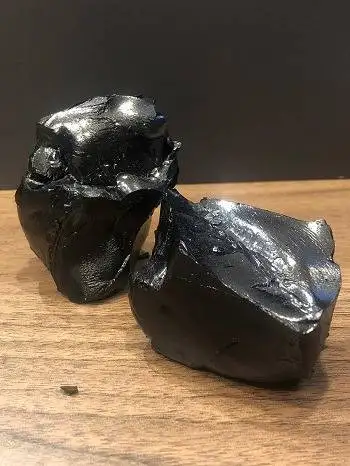The difference between carbon black and Gilsonite or mineral bitumen is a black mineral with high viscosity, whose structure consists of dissolved solid hydrocarbons and is extracted from underground mines.
But carbon is a type of para–crystalline carbon that has a large surface-to-volume ratio.
Mineral bitumen is a natural hydrocarbon, with a resin-like structure, and is soluble in aromatic and aliphatic solvents, as well as petroleum bitumen, which is mainly used to harden softer petroleum products.
And natural asphalt is classified as a soluble substance in oily solutions, and also has long hydrocarbon chains, while carbon black can be controlled by partial combustion of oil or gases.
Another use of Gilsonite is in the composition of bitumen, but carbon black is mainly used as a fiber filler in reinforcing tires and rubber products.
What is Gilsonite?
Gilsonite is a natural, resinous hydrocarbon, solid, black, lightweight organic material, this natural asphalt is similar to a hard petroleum asphalt and is often called a natural asphalt, asphaltite, uintaite, or asphaltum.
This unique natural combination, rich in nitrogen and beta-carotenes and low in sulfur, is what makes Gilsonite so special and its physical properties make it high-performance.
It is also used to coat and seal asphalt pavements and parking lots and is used as an adhesive and waterproofing agent in the manufacture of roofing.
Usage of Gilsonite
Gilsonite is used in many parts of the industry such as the paint and polish industry, as carbon black wetting agents for black news ink and heat set and gravure ink, asphalt driveway coat sealer.
And foundry sand casting sand additives, and cementing slurries
In bitumen and asphalt production
For manufacture of high-purity carbon electrodes in the nuclear industry.
In roofing materials primarily as an agent to lower the penetration of petroleum asphalt without aging or oxidizing the base asphalt.
